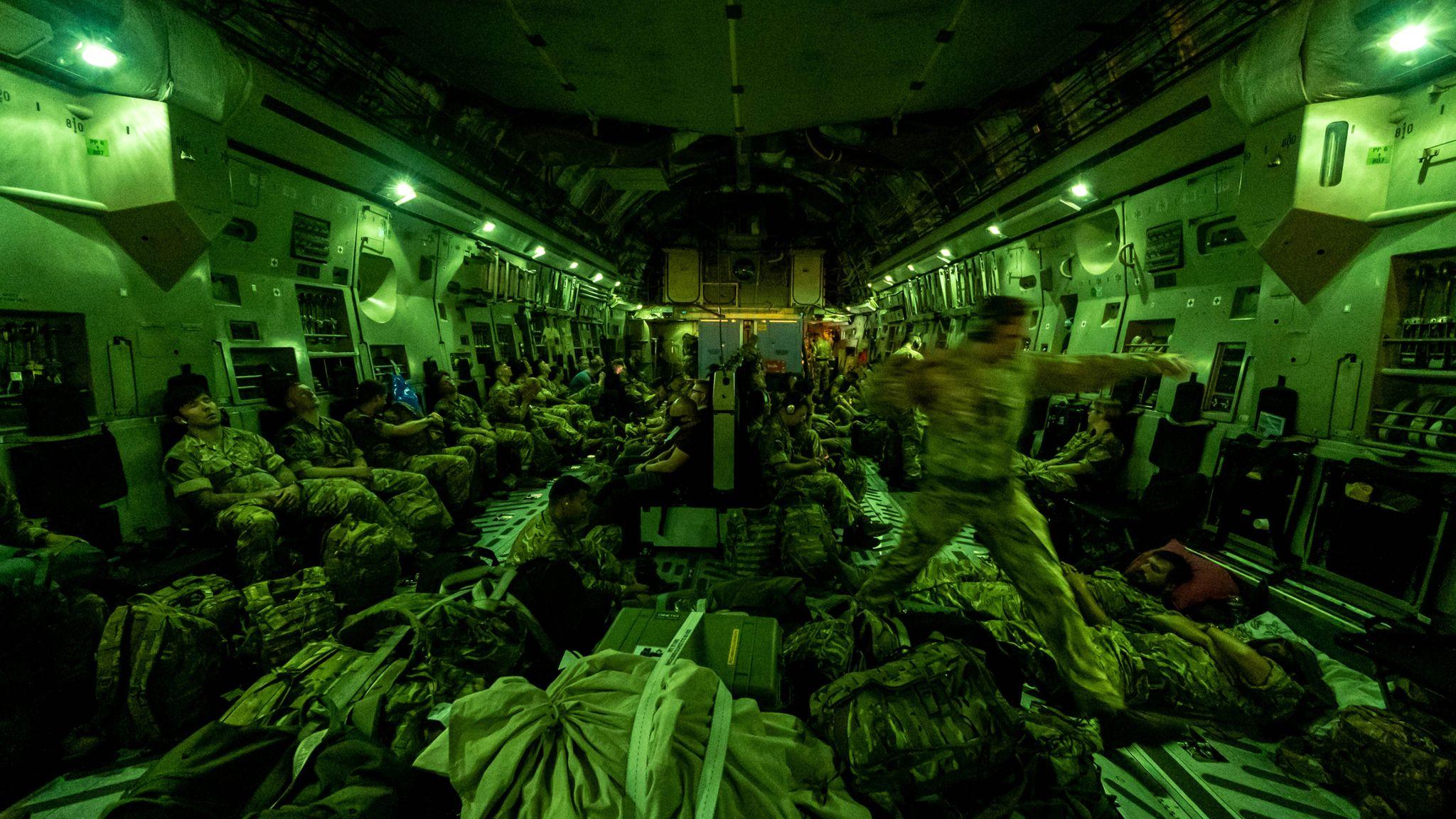
The Taliban are in control of Afghanistan and British and NATO forces will not be returning to fight the insurgents, Britain’s defence minister said on Monday.
“I acknowledge that the Taliban are in control of the country,” Defence Secretary Ben Wallace told Sky News. “I mean, you don’t have to be a political scientist to spot that’s where we’re at.”
Asked if Britain and NATO would return to Afghanistan, Wallace said: “That’s not on the cards that we’re going to go back”
Wallace said the military side of Kabul airport was secure and that Britain was doing everything it could to evacuate British citizens and Afghans with links to Britain.
“Our target is ... about 1200 to 1500 exit a day in the capacity of our aeroplanes, and we’ll keep that flow,” he said.
Britain has relocated its embassy to Kabul airport from the city. Asked what he would feel to see the Taliban flag flying over the former British embassy building in Kabul, Wallace said:
“It’s not the embassy anymore, we have left that location ... so it’s now just a building.
“Symbolically, it’s not what any of us wanted.”
Wallace said it was not yet the right time to decide on whether to recognise the Taliban as the Afghan government.
“I think there is a lot of more to come before those decisions are made,” he said. “The proof of the pudding will be obviously in their actions rather than their rhetoric.”
Previously however British Prime Minister Boris Johnson had said on Sunday that nobody should bilaterally recognise the Taliban as the government of Afghanistan, adding it was clear that there would be a new administration in the country very shortly.
"We don't want anybody bilaterally recognising the Taliban," Johnson said in an interview clip, urging the West to work together on Afghanistan through mechanisms such as the United Nations and NATO.
"We want a united position amongst all the like-minded as far as we can get one so that we do whatever we can to prevent Afghanistan lapsing back into being a breeding ground for terror."
Taliban insurgents entered Kabul on Sunday, President Ashraf Ghani left the country and the U.S. Embassy said the capital's airport, where diplomats, officials and other Afghans had fled, had come under fire.
"The (UK) ambassador is working round the clock, has been there at the airport to help process the applications," said Johnson.
Asked whether he would have expected the country to fall to the Taliban so quickly, he replied:
"I think it's fair to say that the U.S. decision to pull out has accelerated things."
Separately, Russia said earlier on Sunday that it does not yet recognise the Taliban insurgents as Afghanistan's new lawful authority, RIA state news agency reported.
Source: Reuters





